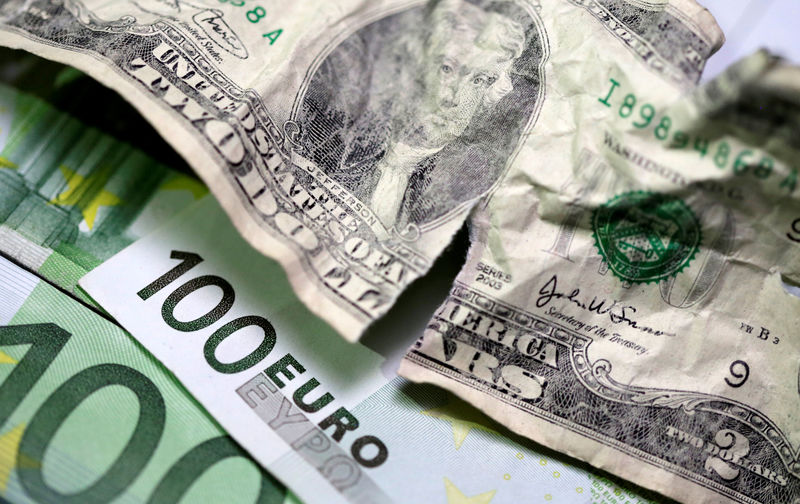By Geoffrey Smith
Investing.com -- The dollar slipped in early trading in Europe on Monday, failing to get much support from talk of the Federal Reserve hiking again by 75 basis points at its next meeting.
By 3 AM ET (0700 GMT), the Dollar Index, which tracks the greenback against a basket of advanced economy currencies, was down 0.3% 104.20, a move that nonetheless reflects only a small consolidation from the 19-year high that it hit on Friday.
Risk sentiment was supported by the decision of the People's Bank of China overnight not to cut its benchmark Prime Loan Rate from 3.70%, despite a clear decline in inflationary pressures and a rise in lockdown-driven unemployment in recent weeks. The offshore yuan rose 0.4% to 6.6836 in response.
On Sunday, Fed Governor Christopher Waller had said he was "all in" on bringing down inflation and was open to another rate hike of 75 basis points when the Fed meets again in July. He ruled out the more extreme scenario of a hike of 100 basis points, warning that markets would suffer a "heart attack."
Waller is a known inflation 'hawk' and his rejection of a full point rise was taken as a sign that there will not be any consensus for such a step in the foreseeable future, despite comments from both Treasury Secretary Janet Yellen and Waller's Fed colleague Loretta Mester that inflation is likely to remain high for the rest of the year. Trading in the dollar is, in any case, set to be subdued on Monday by the U.S. holiday.
The euro meanwhile, shrugged off news that French President Emmanuel Macron had lost his majority in parliament at national elections due to a surge in support for parties at both extremes of the political spectrum, casting doubt over his ability to extend the broadly pro-business agenda.
French bonds, however, were less sanguine about the result, the yield on the 10-year benchmark rising by as much as 5 basis points before paring gains. Yields move inversely to prices.
Over the weekend, the German government committed more funds to securing alternative gas supplies for the winter and also announced it would restart a handful of coal-fired power stations, a strong policy signal of support for the economy from a government that includes the environmentalist Greens.
The reason for that step was made clear again by Germany's producer price inflation for May, which hit another record high of 33.6% after a surprisingly strong 1.6% rise in prices on the month. Wholesale gas prices, which rallied strongly last week as Russia cut supplies to its European customers, rose another 5% in early trading on Monday.
Elsewhere, the pound edged higher, despite the prospect of a week of travel disruption from strikes on national rail and London Underground networks.
